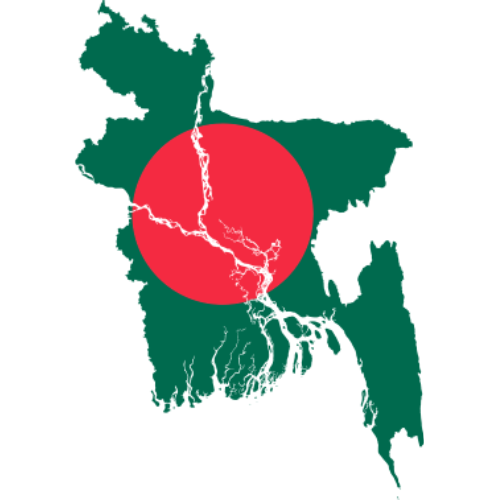Bangladesh, a growing country in South Asia, has been facing a major issue of corruption and theft by political leaders and influential business figures. Over the 20 years that Sheikh Hasina served as the Prime Minister, billions of dollars were illegally moved out of the country. This massive theft is known as capital flight, and it has severely impacted Bangladesh’s economy.
It is estimated that $150 billion (around Tk 17.6 lakh crore) was stolen and transferred abroad during Hasina’s time in power. The stolen money came from inflated project costs and fake bank loans and was sent to countries like the United States, United Kingdom, Canada, Malaysia, Singapore, and the United Arab Emirates. The wealth was often used to buy luxurious properties and hidden in secret bank accounts overseas.
For example, Saifuzzaman Chowdhury, a former Land Minister, built a property empire worth $675 million in several countries, including the UK and Dubai. This level of looting was common under Hasina’s government, making it harder for ordinary Bangladeshis, as the stolen money could have been used to improve healthcare, education, and infrastructure.
The Role of Western Nations
Many Western Nations and wealthy countries have unknowingly helped corrupt leaders from Bangladesh hide their stolen wealth. These countries provide attractive financial systems that make it easy for corrupt individuals to invest, buy real estate, or open secret bank accounts. As a result, stolen money from Bangladesh moves into Western Nations through their financial networks with little scrutiny or questioning.
In many cases, banks in Western Nations do not thoroughly check the sources of incoming money. This failure is known as a lack of due diligence, where financial institutions prioritize profits over ensuring the money is clean and legal. This makes it easier for corrupt leaders from developing nations like Bangladesh to move their stolen money abroad without getting caught.
Some Western Nations allow corrupt individuals to use tools like shell companies, offshore accounts, and trusts to hide their identities. This process, called money laundering, is why so much stolen wealth from Bangladesh has ended up in foreign countries. These financial systems let people move large sums of money without raising alarms, making it harder to track and recover the funds.
US Sanctions Devastate Russia’s Nuclear Financing; Bangladesh Struggles to Repay Interest
By allowing these practices to continue, Western Nations are not just helping corrupt individuals escape justice but also depriving countries like Bangladesh of essential resources. If this stolen wealth could be returned, it would help improve the lives of millions of people by funding schools, hospitals, roads, and job creation.
How Western Nations Can Help
There are ways in which Western Nations can play a crucial role in helping Bangladesh recover its stolen wealth. Several international laws and agreements focus on preventing money laundering and returning stolen assets to their rightful countries.
One such agreement is the United Nations Convention against Corruption (UNCAC), which sets global standards for governments and financial institutions to combat corruption and recover stolen funds. Another important group, the Financial Action Task Force (FATF), establishes rules to prevent illegal financial activities and stop money laundering.
By cooperating with Bangladesh, Western Nations can help track down where the stolen money has been hidden. This cooperation involves sharing information about bank accounts, properties, and investments held by Bangladeshi politicians and businessmen in Western Nations. With this information, governments can freeze these assets and return them to Bangladesh.
Professor Muhammad Yunus, a well-known Nobel laureate from Bangladesh, has already started working on this issue. He is using his global connections to ask for help from countries like Switzerland and organizations like the World Bank. These global organizations can provide legal guidance and technical support to help recover the stolen money.
Although recovering stolen assets is a difficult process, many developing countries have done it successfully in the past. Western Nations have a significant responsibility as part of the global financial system to prevent money laundering and stop corrupt individuals from using their systems to hide stolen wealth.
If Western Nations take these steps, they can help Bangladesh recover the stolen money, which could have a huge positive impact on the country’s economy. It would also give hope to millions of people who rely on these funds for better schools, hospitals, and job opportunities.


